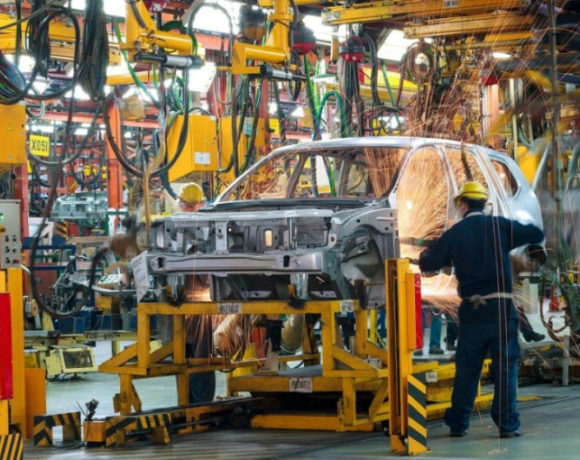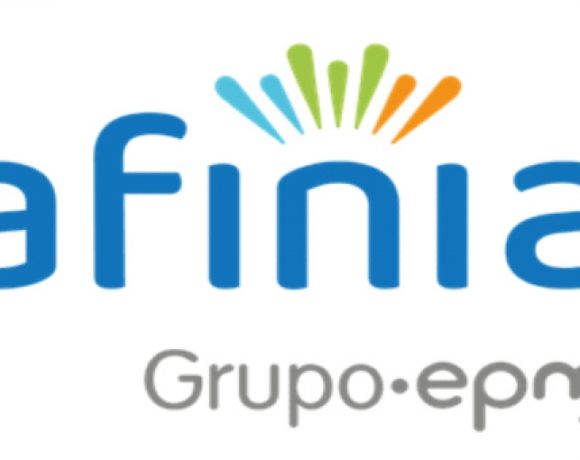Cementos Argos 1Q 2020 Net Income Drops 73% Year-on-Year

The Coronavirus crisis continues to slam companies as Medellin-based cement/concrete multinational Cementos Argos reported May 6 that its first quarter (1Q) 2020 net income dropped 73% year-on-year, to COP$18 billion (US$4.6million).
Corporate-wide cement sales dropped 6% year-on-year, while ready-mixed concrete sales declined 16% as a result of the crisis.
Earnings before interest, taxes, depreciation and amortization (EBITDA) also dipped 5.3%, to COP$343 billion (US$86 million), according to the company.
In Colombia, cement sales fell 14% year-on-year, while ready-mix concrete declined 19.5% and aggregates sales slumped by 60%. As a result, Colombia gross revenues for 1Q 2020 fell 6.1% year-on-year, according to the company.
Reacting to the downturn, Cementos Argos announced a “Project Reset” plan aiming to save “between US$75 million and US$90 million in 2020” in order to “address the impact of Covid-19 on the Argos operation.”
“Additional savings arise from a reduction in capex of US$40 million for the current year,” the company added.
“With the company’s strong cash position, the savings initiatives within ‘Reset,’ the support of our stakeholders and the passionate commitment of our more than 7,000 employees, we firmly believe that Argos is fully prepared to face the current conditions of the market,” said Juan Esteban Calle, CEO of Cementos Argos.
Cement and concrete sales-volume declines “were affected by the value recovery strategy successfully implemented in Colombia” as well as “adverse weather conditions in the U.S. region” along with “quarantines and market damages due to the Covid-19 outbreak in Colombia, in the Caribbean and Central America,” according to the company.
Colombia Results, Outlook
In Colombia, “Argos estimates that the impact of Covid-19 on its EBITDA derived from the [Covid-19] containment measures was around COP$35 billion [US$8.8 million]. In order to face this difficult situation, and to prepare the company for gradual recovery that the markets will experience in the coming months, Argos has launched ‘Reset,’” according to the company.
“Cement and concrete shipments decreased 13.9% and 19.5% respectively, in yearly terms. These results were affected by the value recovery strategy carried out successfully during the first quarter of the year, as well as by the decreed quarantine by the Colombian government as of March 25, reducing our working days by 8% during the quarter.
“During the quarter, clinker and cement imports decreased by 35.3% and 56.1% respectively compared to 1Q 2019, which, together with the growth of the market during January and February allowed us to continue improving prices in the segment of cement, ending with an increase of around 13.5% compared to 1Q 2019.
“The [quarantine] closure measure for infrastructure sector was lifted on April 13, and for the residential and commercial sectors on April 27, which allowed us to begin the restart of our operations.
“As of the date of this report, the [Colombia highway infrastructure] business shows a positive trend with a recovery in volumes of around 50%. The industrial business, as expected, will experience a slower recovery given the strict protocols that must be followed to reopen construction sites.
“In general, shipments made during April have doubled our initial market expectations, significantly improving our scenarios in the region.
“Additionally, the devaluation of the Colombian peso generated an increase in the [import] parity price, adding more space for our strategy of value recovery amid gradual market recovery.
“Regarding the outlook for this year, we recognize the early steps taken by the government to successfully contain the contagion curve and, in that sense, we expect a prompt revival of the economy, recognizing the challenge that this represents in a scenario of low oil prices and currency devaluation.”
USA Outlook
Beyond Colombia, “we remain positive about the medium-term outlook in the USA region, but we recognize the possibility that there may be short-term market effects due to the impact on the economy due to the Covid-19 outbreak,” according to Cementos Argos.
“We have experienced a slowdown in the residential segment and we expect this trend to continue given the deterioration in monthly statistics on housing starts, housing permits and unemployment. In the commercial segment, similar damages could arise as evidenced in the deterioration of the ‘Architectural Billing Index.’
“In infrastructure, we foresee short-term impacts derived from the liquidity shortage both at the [U.S.] state level as in the whole country, but we expect a rebound in the medium term supported by government initiatives to promote this sector. Public spending in March presented a 7.9% increase, in line with our expectations.”
Central America/Caribbean Outlook
Revenues and EBITDA in 1Q 2020 for the Caribbean and Central America decreased by 16.9% and 33.5%, respectively, according to Argos.
“General results in the Caribbean and Central America region continued to decrease partly due to the market slowdown caused by the Coronavirus, but mainly due to the prices in Honduras that continue to be lower than the 2019 average price and the challenging environment of the construction sector in Panama,” according to the company.
“In that sense, cement volumes and ready-mix concrete volumes decreased 4.1% and 34.1% compared to the same period in 2019.
“The Panamanian government has demonstrated its willingness to boost the local economy and protect national production by imposing a 30% tariff on cement imports into the country. We hope that this measure will be evaluated and implemented by other countries in the region, given the current market conditions and its impact on local economies.
“In Honduras, we inaugurated solid-fuel storage in the north of the country and supplied 11.6% of the energy consumed by the Piedras Azules plant in 1Q 2020 with a solar-power farm operated by Celsia, with the aim of reducing our costs. With this solar farm, we also reduced CO2 emissions from our energy supply by around 1,500 tonnes during 1Q 2020, in line with our commitment to sustainability,” the company added.
















